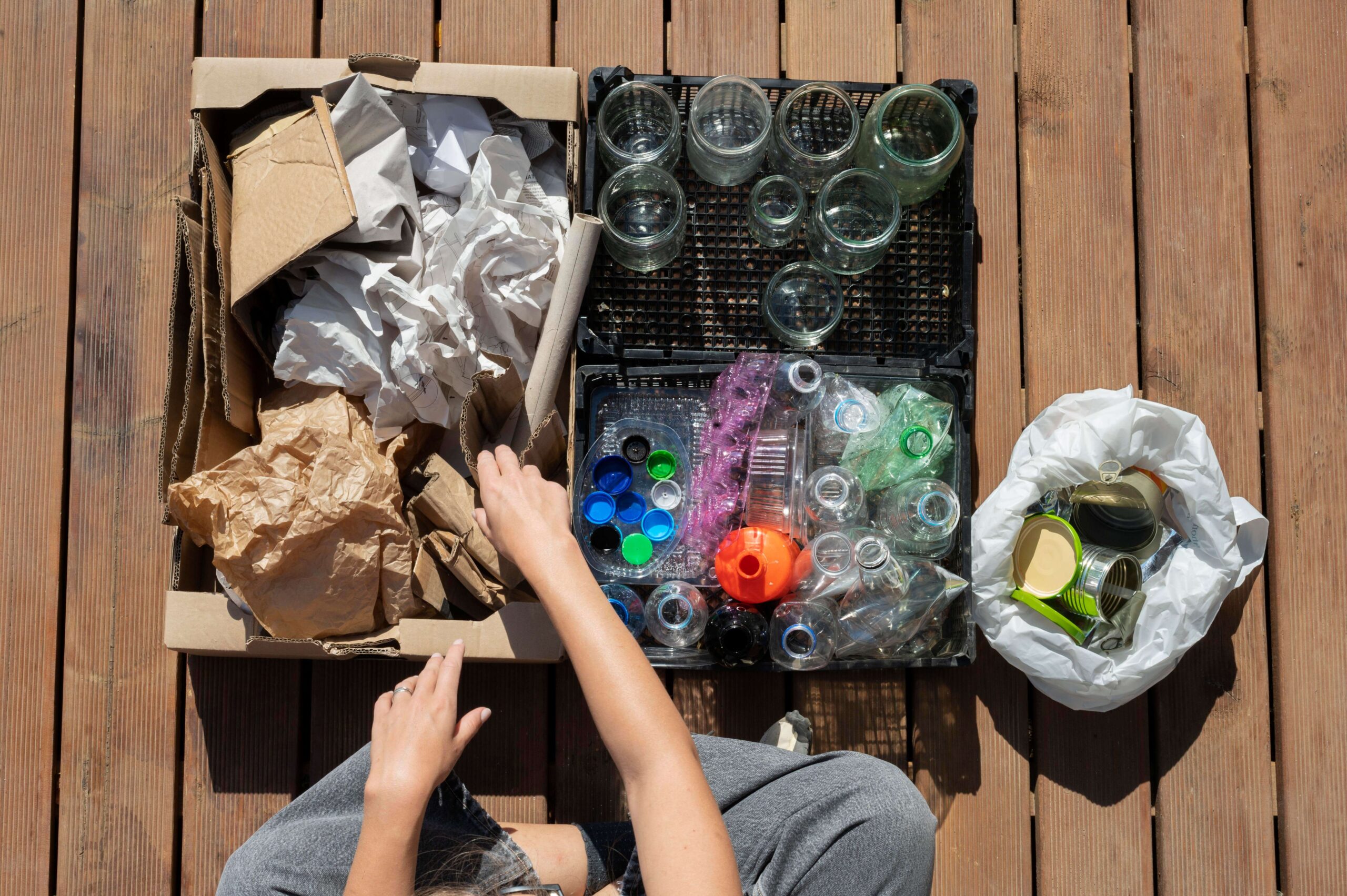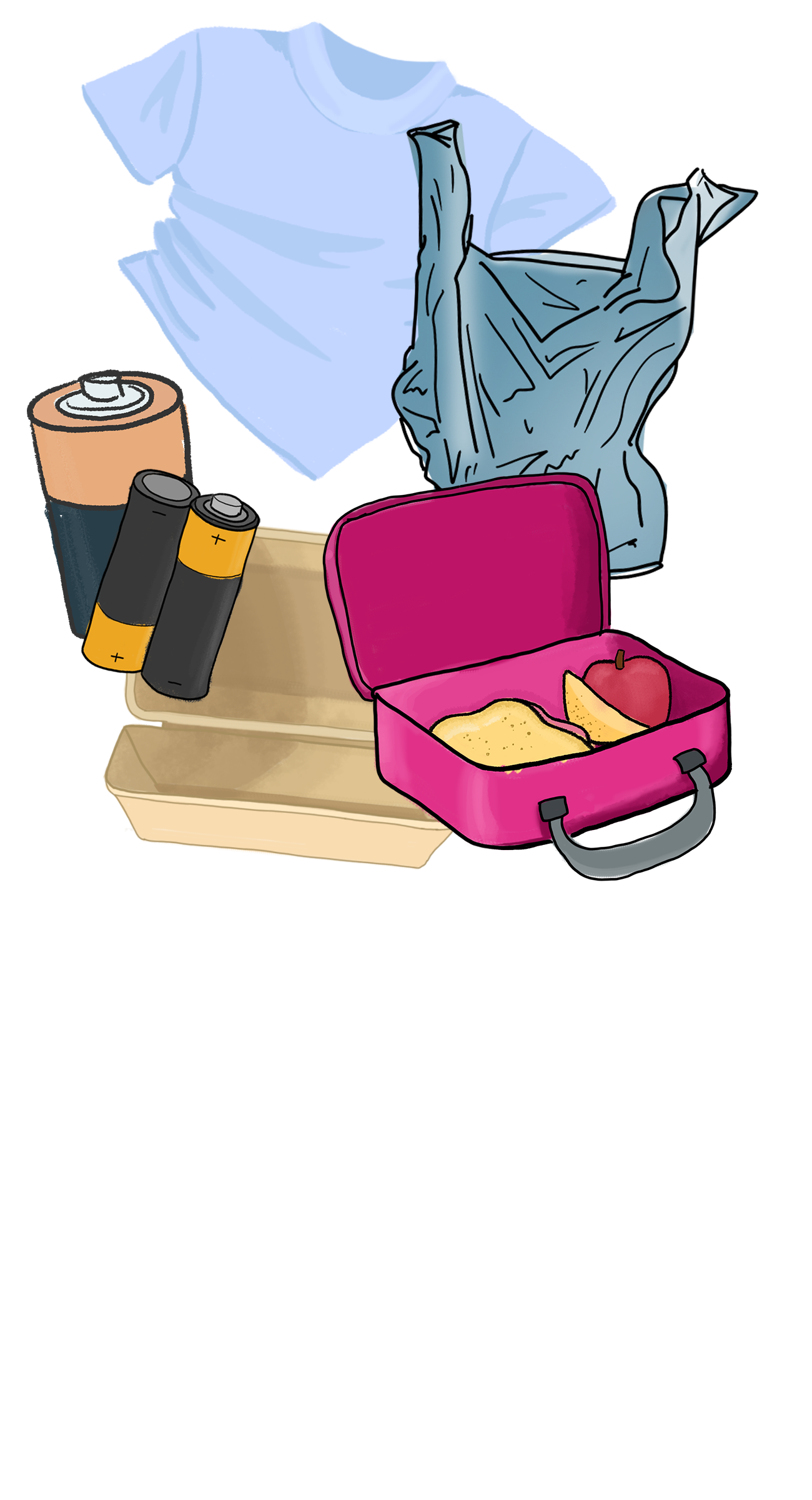THE PROBLEM
- Plastic bags
- Broken glassware or mirrors or glass from a photo frame
- Batteries
- Clothing and other textiles
- Food containers with food in them.
- Building materials, like pieces of timber or bricks
- Paper towels



- Plastic bags
- Broken glassware or mirrors or glass from a photo frame
- Batteries
- Clothing and other textiles
- Food containers with food in them.
- Building materials, like pieces of timber or bricks
- Paper towels
Recycle Mate is a game-changer as it removes the recycling guesswork, no matter where you are in Australia! Just take a photo or type the name of an item you would like to know more about and Recycle Mate will give you disposal advice specific to your location.
Most councils have a website which will tell you what is accepted, and many bins list the materials that can be put in them.
Container deposit schemes provide a financial incentive to reduce litter, leading to cleaner beaches, waterways, parks and streets, and meaning fewer recyclable materials are sent to landfill. This provides the cleanest, highest value material for recycling and a source of cash for you or your school, sports group or charity. Only Tasmania and Victoria are yet to implement schemes – all other states & terrritories are operational.
Scrunch up your aluminium foil into the size of a small fist, then place it in the yellow recycling bin. Alternatively, you can put smaller pieces of foil into an aluminium can before placing it in the recycling bin. Place your foil trays and pie plates into the recycling bin loose.
Australia has an official battery recycling scheme. Which means it’s super easy to give your dead batteries new life.
Phones are incredibly easy to recycle via Mobile Muster. Or to resell via Mazuma! Could you buy a reconditioned laptop? And remember to recycle your toner cartridges – you can drop off your used or empty laser and inkjet cartridges at all Officeworks stores.
This easy to read label provides clarity about what packaging can be recycled and tells you where to put each element of the packaging. It removes confusion, saves you time and reduces waste going to landfill.
Return good quality items to charity stores and remember that some clothing manufacturers run take-back programs. Buy vintage, use online exchanges or resale platforms and participate in organised clothes-swap ‘swishing events’.
Don’t bag or tie your recyclables, just keep them loose. Flatten cardboard but do not squash bottles or cans. Rinse containers – small amounts of food don’t interfere with the glass and steel recycling process – just scrape all the solid food scraps out of jars and cans and give your bottles and containers a rinse (soap is unnecessary) to remove excess debris.
We can now recycle tennis balls, thongs, blisterpacks, coffee cups, plant pots, computer keyboards and seedling trays – but none of these things can go in your kerbside bin.